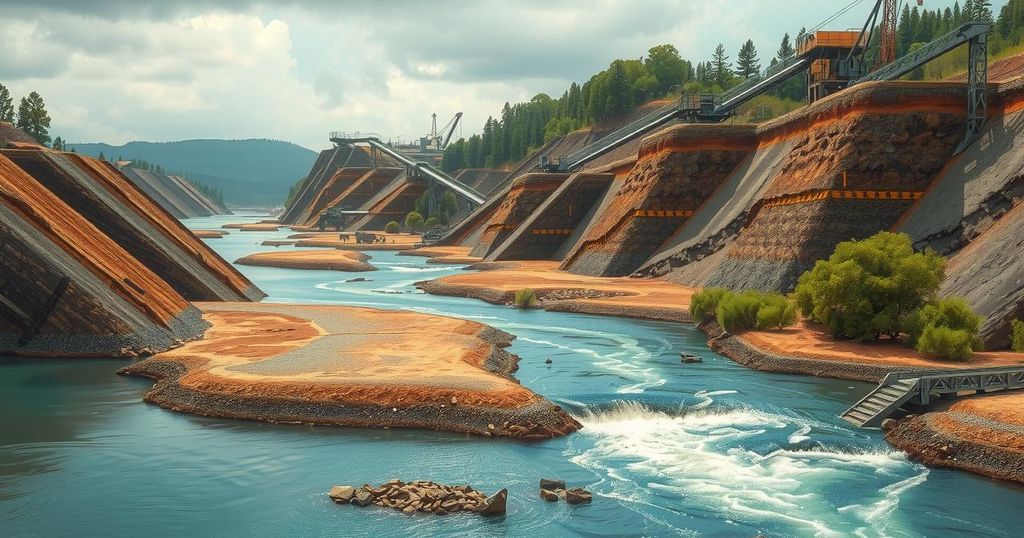The legalization of mining in El Salvador, requested by President Nayib Bukele, raises environmental concerns exemplified by the contamination of the San Sebastián River. While some argue for economic development, many environmentalists highlight the potential dangers to water sources and public health, questioning the accuracy of reported gold reserves and the benefits of mining.
The San Sebastián River in El Salvador has lost its fish population due to pollution from an old gold mine. The recent legalization of mining, requested by President Nayib Bukele, raises concerns that similar environmental degradation will occur elsewhere. Previously, a ban on metal mining enacted in 2017 was lifted, based on a report asserting the presence of gold deposits valued at 131 billion dollars, which Bukele claims could significantly benefit the economy. However, environmentalists challenge these claims, citing the detrimental impacts exemplified by the San Sebastián River’s contamination.
In Santa Rosa de Lima, near the now-defunct Cerro San Sebastián mine, contaminated wastewater continues to affect the river. Community leader Graciela Funes presented samples of the polluted water, emphasizing the crisis: “Here are the facts.” Environmentalist Vidalina Morales supports Funes’ sentiment, advocating for unified opposition to mining operations. A 2016 human rights report indicated that the mine had greatly diminished the water quality, leading to survival in the area being reliant on purchased water, illustrating the ongoing struggle for water accessibility.
Historically, the San Sebastián mine was once Central America’s most productive, but it left considerable environmental damage and public health issues. Biologist Cidia Cortés highlighted that over its operational years, the mine caused long-lasting negative consequences. Although the official concession was revoked in 2006, illegal artisanal mining continues, revealing unresolved environmental and health issues that the state has yet to address.
Concerns abound that renewed mining may pollute the Lempa River, a crucial water source for a majority of the capital’s residents. Nevertheless, some political analysts, like Nelson Flores, advocate for mining as a pathway to economic growth, arguing for modern extraction techniques that may minimize environmental harm. He dismissed the environmentalists’ dire forecasts as exaggerated, asserting that economic advancement should not be hindered by fears.
However, experts such as Ricardo Navarro from the Salvadoran Center for Appropriate Technology suggest that the estimates of gold reserves may be overly optimistic. He noted that the concentration of gold in the local soil is minimal, potentially resulting in substantial environmental destruction with little financial return. Economist Julia Martínez expressed skepticism regarding President Bukele’s motivations, suggesting he might be misled by inflated promises regarding the presence and profitability of gold in the country.
The reintroduction of mining in El Salvador brings forth a contentious debate. Environmental concerns regarding water contamination and health hazards stand against arguments for economic growth potential. While some analysts foresee improvements in living standards through mining, environmentalists warn of lasting ecological damage. The discourse highlights a critical need for careful consideration regarding natural resource management and community health.
Original Source: ticotimes.net




